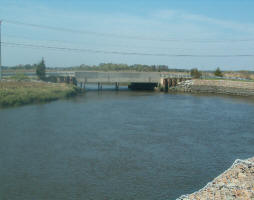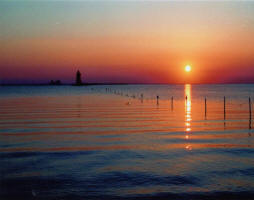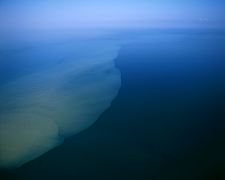 Danube Cleaner but More Work Needed
Danube Cleaner but More Work Needed
The Danube and its tributaries are becoming cleaner, the International Commission for the Protection of the Danube River (ICPDR) announced, presenting the scientific results of the Joint Danube Survey 2 (JDS2) -- possibly the world's biggest river research expedition ever.
The findings confirm that the cooperation among Danube countries to reduce pollution is bringing positive results. Progress has been made in many areas since the Joint Danube Survey 1 of 2001. Water quality is generally improving, but more work is needed. People can swim in parts of the Danube River Basin, but not everywhere. People can eat fish without health risk, but further investigation of mercury concentrations is needed in some areas.
The Danube still contains significant natural populations of plants and animals. The first ever systematic survey of the river's "hydromorphology" (the physical characteristics of its shape, boundaries and content) identified large areas that remain in good natural condition. Positive efforts that have been made to restore damaged natural areas, such as floodplains near Vienna and in the Danube Delta, need to continue if a good ecological condition of the river is to be achieved everywhere.
At the same time, the survey confirms that a further reduction of nutrients and organic pollution is needed. The Danube continues to show signs of degradation downstream of major cities and in a number of important tributaries because of poor municipal waste treatment. Efforts to establish waste water treatment plants in the basin, particularly in cities such as Budapest, Belgrade and Bucharest, need to be accelerated. Some countries need to intensify the pollution control efforts by industry on major tributaries. Overall, the reduction of pollution from agriculture (both nutrients and pesticides) must continue. Some toxic hot-spots also require more active attention.
Areas for further research and investigation were also identified. This includes levels of mercury in some samples, particularly in fish, as well as the sources of pollutants in some tributaries. The large number of non-native fish and other organisms in the Danube also require further assessment.
| Contact information |
Vienna International Centre, D0412, P.O. Box 500, Vienna, 1400, Austria - www.icpdr.org
(email: icpdr@univienna.org) Phone: +43 1260605738 ; +43 1260605895 |
|---|---|
| News type | Inbrief |
| File link |
http://www.european-waternews.com/news/id230-Danube_Cleaner_but_More_Work_Needed.html |
| Source of information | ICPDR in Directory |
| Subject(s) | METHTODOLOGY - STATISTICS - DECISION AID , NATURAL MEDIUM , POLICY-WATER POLICY AND WATER MANAGEMENT , PREVENTION AND NUISANCES POLLUTION |
| Relation | http://www.icpdr.org |
| Geographical coverage | Czech Republic, Bosnia and Herzegovina, Austria, Bulgaria, Croatia, Germany, Hungary, Moldova, Romania, Serbia, Slovakia, Slovenia, Ukraine |
| News date | 17/09/2008 |
| Working language(s) | ENGLISH |
 you are not logged in
you are not logged in





